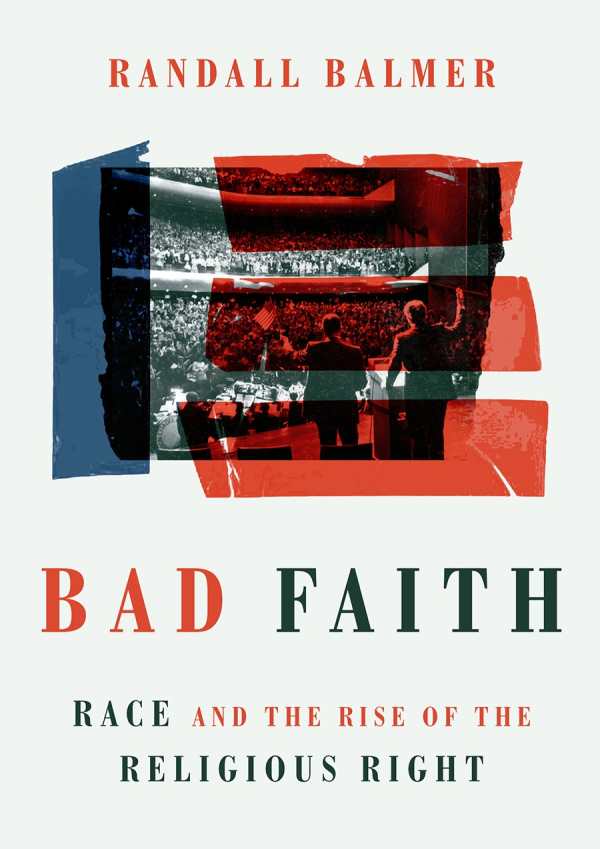Bad Faith
Race and the Rise of the Religious Right
- 2021 INDIES Winner
- Honorable Mention, Political and Social Sciences (Adult Nonfiction)
Randall Balmer’s Bad Faith is a fascinating historical overview of the true origins of the Religious Right in America.
The book begins in a conference room, where US evangelical leaders gather to mark the rise of Ronald Reagan’s America and their growing power. Balmer, the son of an evangelical pastor, was there, and his access results in a tell-all tone as he charts the rise of the hot button abortion issue within the conservative Religious Right, showing how that takeover really happened. In addition, Balmer reveals the complementary, racist origins of the evangelical movement’s impact on conservative Christianity.
The book is brief, moving with speed through its accounts of historical and political realities. It juxtaposes the evangelicalism of the Second Great Awakening, which reflected progressive ideas about caring for the poor, and of evangelical pro-choice periods with their reversals. Balmer asserts that evangelicalism’s progressive roots were subverted when the federal government tried to crack down on Bob Jones University, which it found had discriminated on the basis of race; evangelicals seized this as an opportunity, realizing that they needed a new message in order to gain political power.
They found help in Reagan’s rhetoric about “law and order,” which hid his racist ideas in cloaked language; focusing on abortion helped to hide such racist leanings, too. Still, Balmer says, abortion was a red herring issue—not often on the minds of evangelicals before then: “the abortion myth matters because unacknowledged and unaddressed racism has a tendency to fester.”
Ripping apart tidy evangelical narratives to expose important questions about how race intersects with faith and politics in America, Bad Faith reveals the surprising history of the rise of the Religious Right, showing why those origins still matter today.
Reviewed by
Jeremiah Rood
Disclosure: This article is not an endorsement, but a review. The publisher of this book provided free copies of the book to have their book reviewed by a professional reviewer. No fee was paid by the publisher for this review. Foreword Reviews only recommends books that we love. Foreword Magazine, Inc. is disclosing this in accordance with the Federal Trade Commission’s 16 CFR, Part 255.

